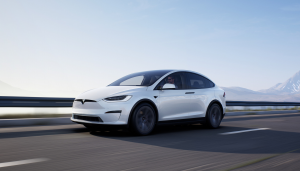Volvo test drives automated cars in Sweden’s streets
This week’s SmartCar roundup features Volvo’s Gothenburg project and its take on EVs, and Ford’s self-parking car.
![]()
Volvo’s Gothenburg project
Car manufacturers are racing to be the first to market autonomous vehicles by 2020, but Volvo seems to be ahead in the game as it’s launched a pilot project in Gothenburg, Sweden where its autonomous cars will be tested in public roads, alongside non-autonomous vehicles. The project is in collaboration with the Swedish Transport Administration, the Swedish Transport Agency, Lindholmen Science Park and the City of Gothenburg.
Volvo believes that its automated vehicles can reduce the frequency of accidents, as well as their severity. These autonomous cars will be able to assess road conditions better, ease traffic congestion by communicating with road infrastructures and other vehicles, and can even offer ways for drivers to relax while on the road.
Volvo’s revolutionary EV
Electric vehicles are still on a short leash, limited by their battery’s charge and a lack of charging stations. Volvo and the Imperial College of London aims to revolutionize EV ownership, with plans to turn car panels into batteries.
The panels will be made using a combination of carbon fibres and a polymer resin to create a very advanced nanomaterial and structural supercapacitors. The reinforced carbon fibres sandwich the new battery and are molded and formed to fit around the car’s frame, such as the door panels, the boot lid and wheel bowl, substantially saving on space.
The material is recharged and energised by the use of brake energy regeneration in the car, or by plugging into a main electrical grid. The energy is transferred to the electric motor, which is discharged as it is used around the car. Tests show that the material is able to charge and store energy faster than conventional batteries while remaining strong and pliant.
Volvo is the only car manufacturer participating in the project launched by the Imperial College in London back in 2010.
Ford’s self parking car
Last year, Ford launched its Focus model that has the ability to assist drivers in parallel parking with the Active Parking Assist feature. It recently demonstrated the Full Assisted Parking Aid in Belgium wherein the car can find a vacant parking space even when the driver is no longer on board, and even park itself. The only human interaction required in the process is that the driver must push the FAPA button throughout the process. During the demonstration, the car was able to back itself to the parking space with ease. No news yet if FAPA allows for front-in parking, as some establishments require this.
Aside from FAPA, Ford also showcased its Obstacle Avoidance technology that deals with slow cars and slower pedestrians in front of you, by braking or steering around them. These innovations bring Ford a step closer to releasing fully automated cars in the coming years.
A message from John Furrier, co-founder of SiliconANGLE:
Your vote of support is important to us and it helps us keep the content FREE.
One click below supports our mission to provide free, deep, and relevant content.
Join our community on YouTube
Join the community that includes more than 15,000 #CubeAlumni experts, including Amazon.com CEO Andy Jassy, Dell Technologies founder and CEO Michael Dell, Intel CEO Pat Gelsinger, and many more luminaries and experts.
THANK YOU













